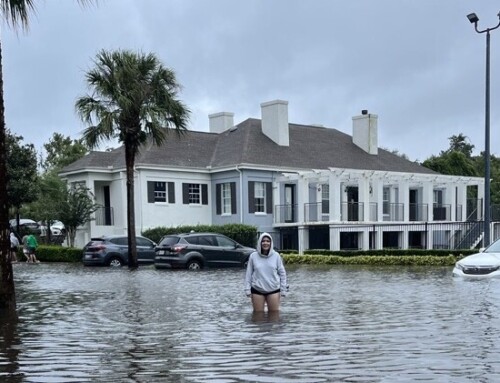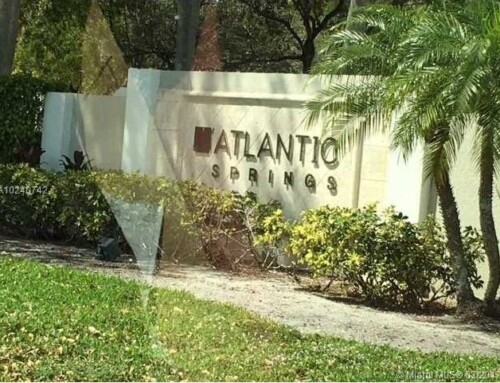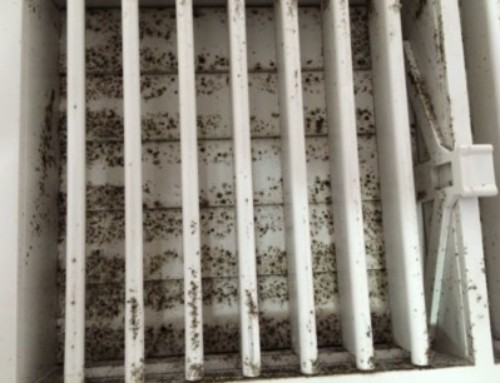Mold contamination in rental properties can lead to serious health issues and significant property damage for their occupants, making it essential for tenants to understand their legal rights and responsibilities. In Florida, the recent case of Johnston-Gebre v. Invitation Homes has brought attention to the enforceability of the “Mold Information and Prevention Addendum” often included and attached to residential leases from large corporate landlords such as Invitation Homes. This article explores the implications of this case and clarifies the legal responsibilities of landlords regarding mold in rental properties. Many of our clients complain that landlords and their management agents refuse to remediate mold complains due to the existence and attachment of the Mold Information and Prevention Addendum to the Lease Agreement. These agents claim that mold is not their responsibility.
The case of Johnston-Gebre v. IH4 Property Florida, also known as Invitation Homes, revolved around Keisha Johnston-Gebre, a tenant who leased a property from Invitation Homes and its management agent, THR Property Management. The plaintiff discovered mold in the property, which was linked to a leaking roof. Despite notifying the landlord, no action was taken to remedy the situation, leading to health issues and property damage.
Key Legal Findings
The court’s decision highlighted several critical points regarding mold-related legal claims and the responsibilities of landlords:
- Void and Unenforceable Mold Addendum: The court found that the “Mold Prevention Addendum” attached to the lease, which attempted to limit the landlord’s liability for mold unless caused by gross negligence or willful misconduct, was void and unenforceable under Florida law. Specifically, the court pointed to Florida Statutes § 83.47 and § 83.51, (also known as the Landlord-Tenant Act), which prohibit provisions in rental agreements that waive or limit a landlord’s statutory responsibilities.
- Landlord’s Responsibility for Maintenance: Under Florida Statutes § 83.51, landlords are required to comply with all applicable building, housing, and health codes. The court found that Invitation Homes failed to meet these requirements by neglecting the necessary repairs to the roof, leading to water intrusion and mold growth. As a result, any attempt to disclaim liability through the Mold Addendum was invalid.
- Health and Safety Violations: The City of Weston found IH4 Property Florida in violation of local building, housing, and health codes due to the mold and water damage. These violations further underscored the landlord’s failure to maintain the property in a habitable condition, as required by law. For this reason, it is suggested that you also contact your local city or county code enforcement department if you suspect mold or any other code violations exist in your rented dwelling.
Implications for Tenants
The Invitation Homes case serves as a significant reminder of the following points for tenants in Florida:
- Tenants’ Rights: Tenants should be aware that signing a Mold Prevention Addendum does not absolve landlords of their legal responsibilities. If mold issues arise due to the landlord’s negligence, tenants have the right to seek legal remedies, including claims for personal injury, property damage, and rent refunds for periods when the property was uninhabitable. Do not be discouraged by management personnel who try to convince you that the landlord is not responsible for mold.
- Landlords’ Obligations: Landlords must ensure that their properties comply with all relevant codes and standards. Attempting to limit liability through lease addendums is not a substitute for proper maintenance and can lead to legal consequences. Regular inspections and timely repairs are essential to prevent mold and other habitability issues.
- Legal Precedents: This case reinforces the legal precedent that landlords cannot contract out of their statutory duties. Provisions in lease agreements that attempt to limit or waive the landlord’s responsibilities under Florida law are likely to be struck down by courts.
Recommendations
Always, promptly notify your landlord of defects in your rented dwelling in writing. The Mold Lawyers recommend using a 7-day Notice to Cure and deliver it to the address specified for legal notices in your lease agreement. Do not begin withholding rent until at least 7 days has elapsed after you have delivered the notice. A sample 7-Day notice is linked here for your use.
Conclusion
The Johnston-Gebre v. IH4 Property Florida case underscores the importance of understanding and upholding legal responsibilities in rental agreements. Tenants should be vigilant about their rights and report any maintenance issues promptly and through the proper methods, while landlords must prioritize the proper upkeep of their properties to avoid legal pitfalls. Mold-related issues, if not addressed, can lead to severe consequences, both for the health of tenants and the legal standing of landlords. Ensuring a habitable living environment is not just a legal requirement under Florida’s Landlord-Tenant Act, but a fundamental aspect of fair and responsible property management.
For more information on mold-related legal claims or to seek legal advice, please contact our office. We handle tenant mold claims throughout the State of Florida.






Leave A Comment